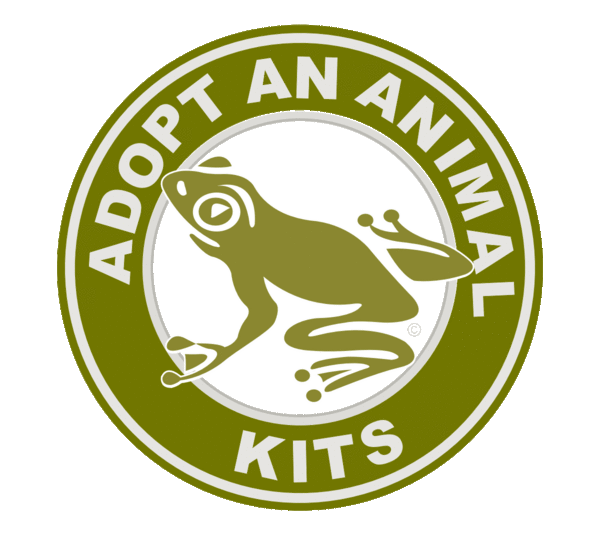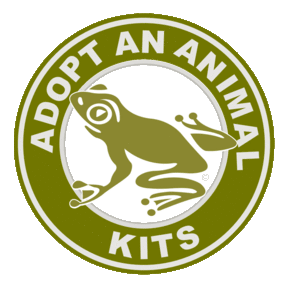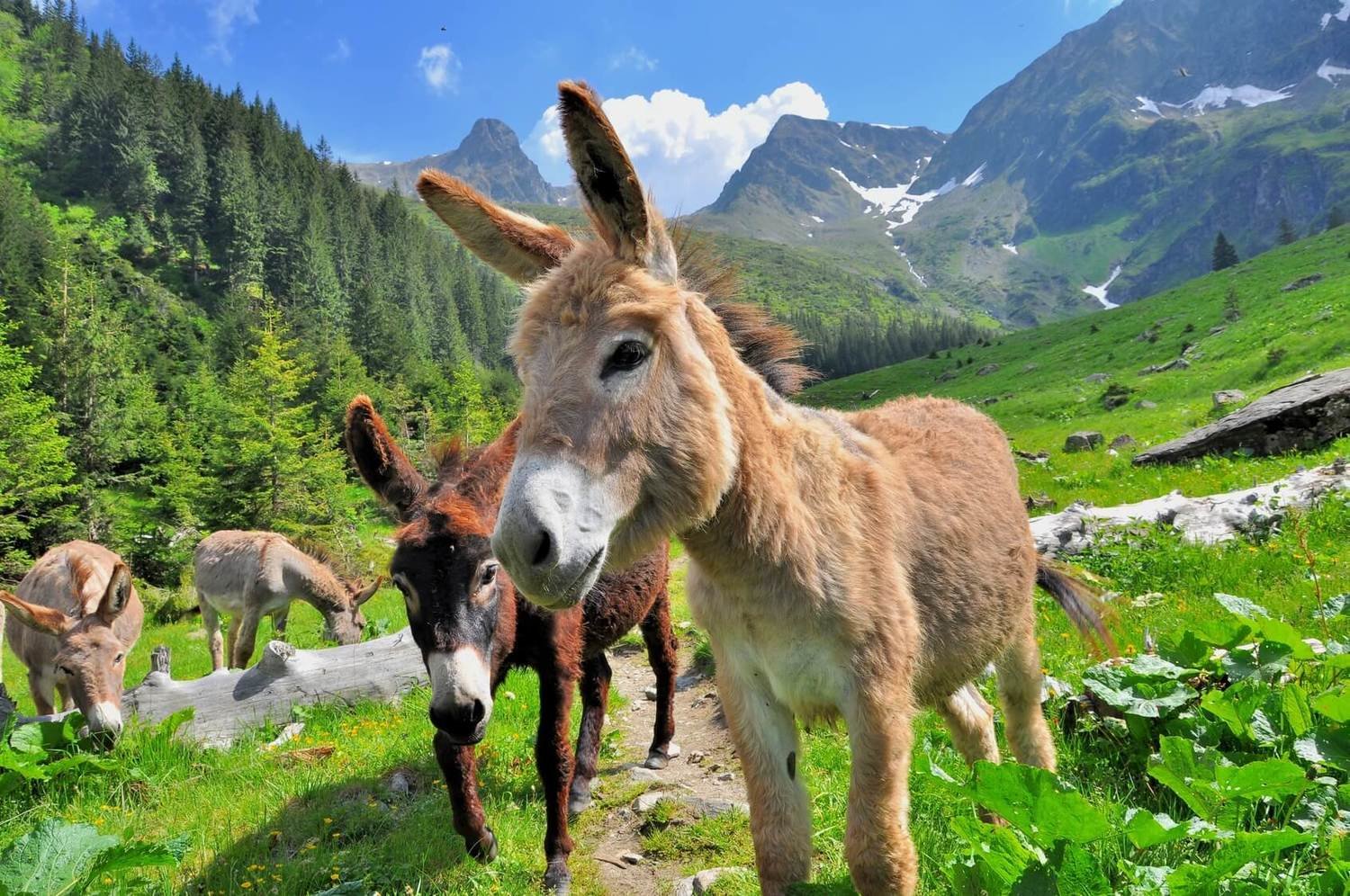

Adopt An Animal Kits
Adopt An Animal symbolically. Your Adopt An Animal Kit comes in a Deluxe Folder and includes: Glossy Photo of Your Adopted Animal; Adopt An Animal Adoption Certificate; Fact Sheet About Your Adopted Animal; Help Animals Info Cards Packed With Information On Animal Issues & How You Can Help Animals And The Environment. Adopt An Animal for Yourself or as a Gift.
Adopt A Donkey
Adopt A Donkey
Your Adopt A Donkey Kit comes in a Deluxe Folder and includes:
- Glossy Photo Of Your Adopted Donkey
- Adopt A Donkey Adoption Certificate
- Fact Sheet About Your Adopted Donkey
- Help Animals Info Cards Packed With Information On Animal Issues & How You Can Help Animals And The Environment
Adopt A Donkey Kits make great gifts and can be sent directly to the recipient. Simply supply the recipient's name and mailing address as shipping information. We'll even include a letter stating the Adopt An Animal Kit is from you.
Adopt An Animal symbolic adoption is a one time fee. Adopt an animal for yourself or order an Adopt An Animal Kit as a gift. Help make a difference for animals - Adopt An Animal Today!
Adopt A Donkey
The donkey or ass, Equus africanus asinus, is a domesticated member of the horse family, Equidae. The wild ancestor of the donkey is the African wild ass, E. africanus. The donkey has been used as a working animal for at least 5000 years.
There are more than 40 million donkeys in the world, mostly in underdeveloped countries, where they are used principally as draught or pack animals. Working donkeys are often associated with those living at or below subsistence levels. Small numbers of donkeys are kept for breeding or as “pets” in developed countries.
Domesticated donkeys are also used as guard animals for goats, sheep and cows against the threat of coyotes. Coyotes are the only natural threat to donkeys.
Wild donkeys, called burros, live in desert plains, where they survive on little food and water for long periods.
A male donkey or ass is called a jack; a female a jenny or jennet; a young donkey is a foal. Jack donkeys are often used to mate with female horses to produce mules.
Donkeys were first domesticated around 3000 BC, probably in Egypt or Mesopotamia, and have spread around the world.
Donkeys vary considerably in size, depending on breed and management. The height at the withers ranges from 31 to 63 inches, and the weight from 180 to 1,060 lb. Working donkeys in the poorest countries have a life expectancy of 12 to 15 years; in more prosperous countries, they may have a lifespan of 30 to 50 years.
Donkeys are adapted to marginal desert lands. Unlike wild and feral horses, wild donkeys in dry areas are solitary and do not form harems. Each adult donkey establishes a home range; breeding over a large area may be dominated by one jack. The loud call or bray of the donkey, which typically lasts for twenty seconds and can be heard over long distances, may help them keep in contact with other donkeys over the wide spaces of the desert. Donkeys have large ears, which pick up more distant sounds and may help cool the donkey's blood. Donkeys can defend themselves by biting, striking with the front hooves or kicking with the hind legs.
A jennet is normally pregnant for about 12 months, though the gestation period varies from 11 to 14 months, and usually gives birth to a single foal. Births of twins are rare, though more common than in horses. Although jennets come into heat within 9 or 10 days of giving birth, their fertility remains low and it is usual to wait one or two further oestrous cycles before rebreeding.
Donkeys can interbreed with other members of the family Equidae, and are commonly interbred with horses. The hybrid between a jack and a mare is a mule. The hybrid between a stallion and a jennet is a hinny, and is less common. Like other inter-species hybrids, mules and hinnies are usually sterile. Donkeys can also breed with zebras in which the offspring is called a zonkey.
Donkeys have a notorious reputation for stubbornness. This has been attributed to a much stronger sense of self-preservation than exhibited by horses.
Although formal studies of their behavior and cognition are rather limited, donkeys are quite intelligent, cautious, playful, and eager to learn. Donkeys are affectionate animals and enjoy the companionship of people. Donkeys require companions or they become depressed. The donkey's favorite pastime is rolling.
THREATS TO DONKEYS
Over 40 million donkeys exist worldwide. China has the most, followed by Pakistan, Ethiopia and Mexico. While domesticated species are increasing in numbers, the African wild ass and another relative, the onager, are endangered.
In many societies donkeys are regarded as low status animals and are commonly mistreated. They are forced to perform more work than their small bodies can handle. Since new donkeys are cheaper than veterinary care, ill and injured donkeys are often tied to posts without food or water and left to die.
In Spain and Greece, donkeys are used as "donkey taxis". Profit is placed above the care of the animals. They are exposed to temperature extremes with little or no food, shelter or water and are made to carry people too heavy for their bodies. At night their feet are tied together to prevent them from wondering off.
Donkeys are abused at live animal markets in China. Some restaurants offer fresh donkey meat where pieces of donkey are sliced off while the donkey is still alive.
Donkeys are sometimes kept as "pets", often poorly cared for. Many are left to fend for themselves. They develop deformed and crippled feet, become emaciated or obese and suffer from dental problems and parasite infestation.
Donkey basketball has been practiced in the United States since the 1930s. Donkey basketball involves human basketball players riding donkeys, usually as a fundraising event. The events typically take place in public schools where children are taught that animal abuse and humiliation is entertaining. The donkeys are often dragged, kicked and punched by participants who have no animal-handling experience. Unethical commercial firms provide donkeys and equipment, splitting the proceeds with the hiring party. Donkey basketball is inhumane and cruel to animals.
Donkeys are not protected by the federal Animal Welfare Act.
Adopt Adopt An Animal Kits
Our Adopt An Animal Kits are educational packets that allow you to symbolically adopt a favorite animal species and contain a variety of information promoting the protection of wildlife, companion animals, farm animals and the environment. By purchasing a symbolic adoption kit you will receive a packet of information regarding daily choices you can make to help the earth and animals.
Your Adopt An Animal Kit comes in a Deluxe Folder and includes:
Glossy Photo Of Your Adopted AnimalAdopt An Animal Adoption CertificateFact Sheet About Your Adopted AnimalHelp Animals Info Cards Packed With Information On Animal Issues & How You Can Help Animals And The Environment.
Adopt an animal for yourself or order an Adopt An Animal Kit as a gift. Symbolically adopting an animal is the perfect gift for a loved one who loves animals, and helps to promote the compassionate treatment of animals and respect for the environment by offering information on how to help the earth and animals. Adopt An Animal Kits can be sent directly to the recipient: simply supply the recipient's name and mailing address as shipping information. We'll even include a letter stating the Adopt An Animal Kit is from you.
Adopt An Animal Kits is a small, independent business not affiliated with any other business, non profit or charitable organization.
Fast Shipping!
Shipping time for Adopt An Animal Kits averages 2 to 4 business days - USA. Allow additional time for Adopt An Animal Kits orders outside the USA. Your Adopt An Animal Packet will arrive approximately 2 to 4 business days following shipping date. Shipping for Adopt An Animal Kits within the USA is by U.S.P.S. Priority Mail.
INTERNATIONAL ORDERS: Average shipping time for Adopt An Animal Kits outside of the USA is 5 to 14 business days, including Canada. International Shipping & Handling for Adopt An Animal Kits is by U.S.P.S. First Class Mail.
About Us

Adopt An Animal Kits, LLC
The world is teaming with an amazing diversity of animals. Some species are beautiful, others bizarre — but they all are important to the ecosystem and deserve our respect, compassion and protection. Unfortunately, many animal species are declining at a rapid rate as a result of irresponsible human activities. Habitat destruction, pollution, hunting, poor agricultural practices and changes in climate are among the threats faced by wildlife and domestic animals.
Adopt An Animal Kits, LLC is a small business who believes in promoting the advancement of compassionate living by educating the public about animal and environmental issues and what individuals can do to prevent cruelty to animals. Through our work, we strive to eliminate the prejudice of animals (speciesism) through educational efforts. Our business produces printed and printable educational materials available to individuals with an interest in earth and animal topics. Our Adopt An Animal Kits seek to educate and influence individuals on environmental and animal issues. The purchase of an Adopt An Animal Kit allows you to symbolically adopt your, or your loved one's, favorite animal species while promoting the protection of wildlife, companion animals, farm animals and the environment. Rather than adopting an indivdual animal, you are symbolicly adopting the species. Each kit contains a collection of information on how you or your loved one can make daily choices to help animals and the environment.
Our website provides an information portal regarding these issues. Information posted on the site is free of charge and available to anyone with an interest. Our printed and printable materials are available to individuals with an interest in earth and animal issues. We produce hundreds of fact sheets, flyers, and digital materials regarding environmental and animal issues. Most materials are available at no cost to anyone with an interest.
Adopt An Animal Kits, LLC is not a charitable or nonprofit organization.

